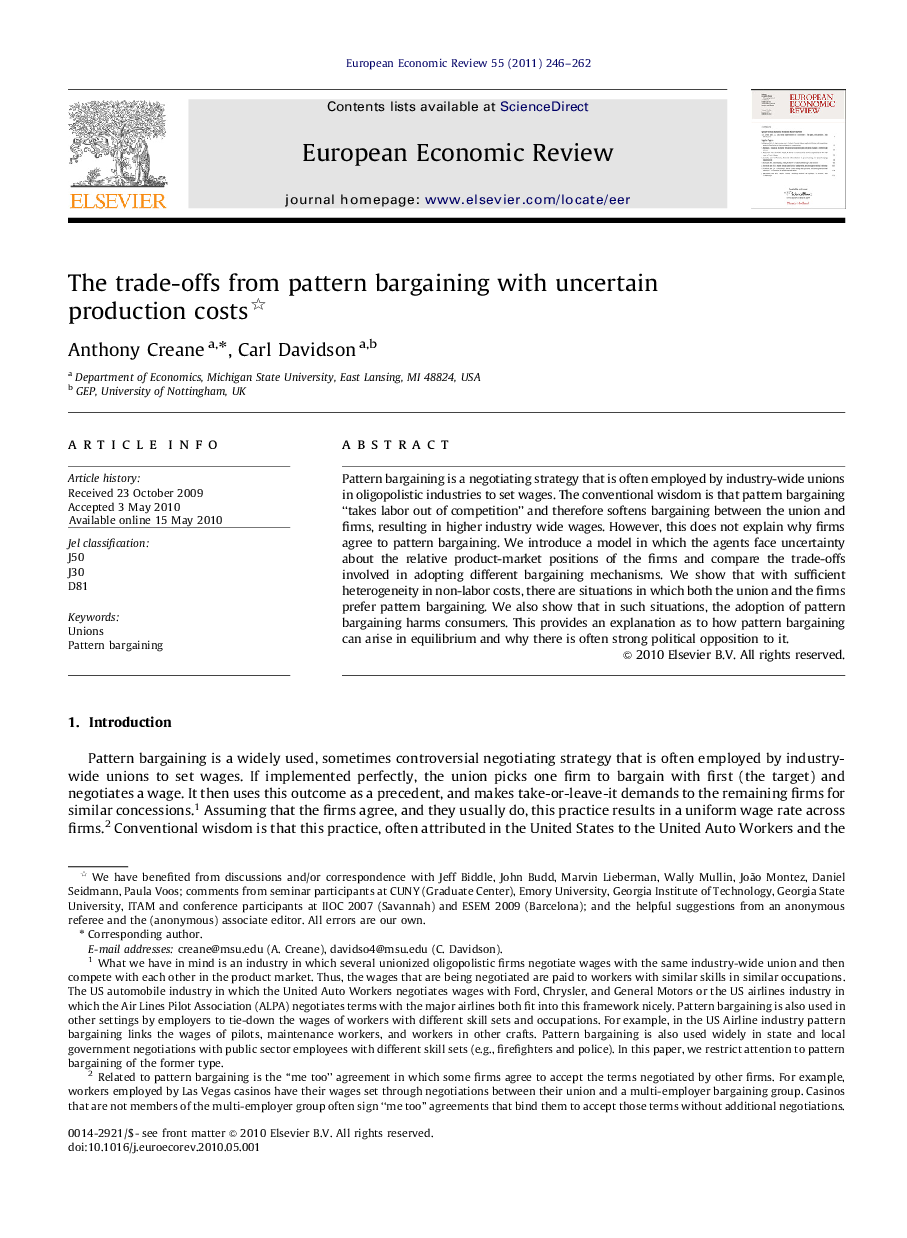| Article ID | Journal | Published Year | Pages | File Type |
|---|---|---|---|---|
| 5067118 | European Economic Review | 2011 | 17 Pages |
Abstract
Pattern bargaining is a negotiating strategy that is often employed by industry-wide unions in oligopolistic industries to set wages. The conventional wisdom is that pattern bargaining “takes labor out of competition” and therefore softens bargaining between the union and firms, resulting in higher industry wide wages. However, this does not explain why firms agree to pattern bargaining. We introduce a model in which the agents face uncertainty about the relative product-market positions of the firms and compare the trade-offs involved in adopting different bargaining mechanisms. We show that with sufficient heterogeneity in non-labor costs, there are situations in which both the union and the firms prefer pattern bargaining. We also show that in such situations, the adoption of pattern bargaining harms consumers. This provides an explanation as to how pattern bargaining can arise in equilibrium and why there is often strong political opposition to it.
Related Topics
Social Sciences and Humanities
Economics, Econometrics and Finance
Economics and Econometrics
Authors
Anthony Creane, Carl Davidson,
